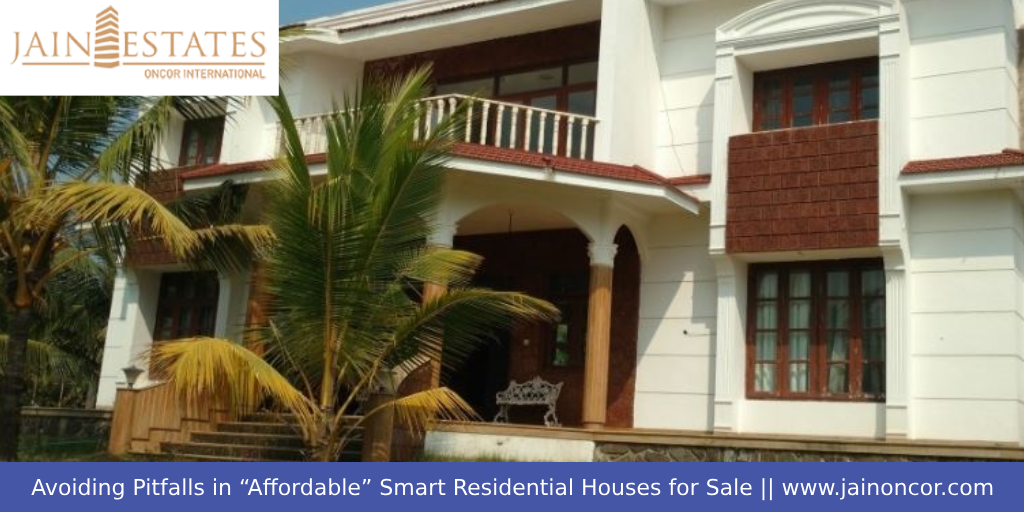A house purchase is surely one of the significant monetary commitments a person makes in their lifetime. The increasing number of new residences makes possible the attraction of customers who see advertised deals for “affordable” houses equipped with smart technology and contemporary designs. Such tempting promotions should make people exercise caution. Several individuals end up falling into undesirable situations after buying homes even though they spent inadequate time examining their options.
The following discussion examines critical mistakes that house buyers should bypass during their search for reasonably priced high-tech residential houses for sale.
1. Too Good to Be True Prices
Review all residential properties for sale at lower prices than surrounding homes since something unspecified may justify the difference. The final selling price of residential houses for sale does not automatically cover various mandatory expenses such as registration fees and maintenance costs alongside parking fees. The area where the house stands could be incomplete in development, while legal approvals could be underway for the property.
Yours should confirm all expenses involved in owning the house before making a decision. Skepticism is valid when news features homes at prices much below market expectations.
2. Hidden Costs behind Smart Features
The market now features numerous residential houses for sale which incorporate automated home technology through speech commands and smartphone management products. Although such features grab attention initially their implementation usually requires added expenses for buyers. After buying the house a buyer discovers that particular hardware devices or subscription services are needed to properly use the technology. The price of maintenance along with repair and upgrade requirements, may climb steeply because specialized service might prove costly in the long run.
Before making any purchase request a complete breakdown of smart features along with the expenditure for their utilization.
3. Smart Technology Doesn’t Guarantee Quality Living
Smart home design is often used as a selling point, but it shouldn’t distract from the basics. Good construction quality, proper ventilation, sufficient natural light, and safety standards should always be a priority. Some residential houses for sale might offer sleek interiors and smart gadgets but lack strong infrastructure or use substandard materials.
Buyers should inspect the property physically if possible or at least request videos and verified construction details from the builder or agent.
4. Unclear Definitions of “Smart” and “Affordable”
These two terms—“smart” and “affordable”—can mean different things to different people. One builder’s definition of smart could be limited to a video doorbell, while another might include a full home automation system. Similarly, “affordable” for one buyer might not be the same for another.
It is important to clarify exactly what is being offered and whether it aligns with your expectations and lifestyle. Review the property brochure and specifications carefully before deciding.
5. Lack of Long-Term Vision
Smart homes are only valuable if they support a comfortable lifestyle for years to come. Some residential houses for sale are designed with the latest tech but do not consider ease of upgrades, maintenance access, or long-term usability. If a system becomes outdated or unsupported, replacing it can be costly and complicated.
Check whether the smart systems are open-source or compatible with widely available platforms. Also, ask if the property is designed to allow upgrades in the future.
6. Trusting the Marketing More Than Research
The charm of digital ads, 3D walkthroughs, and smart-sounding terms can easily convince potential buyers. But, decisions should never be based solely on marketing. Real estate agents and developers might highlight features that sound attractive but don’t add actual value. Before buying any of the residential houses for sale, it’s important to do independent research, read reviews, check legal documents, and verify past projects of the builder.
Conclusion
Home automation features along with affordable pricing remain attractive benefits but they should never replace core requirements of proper construction combined with legal compliance and habitable comfort. New residential houses for sale constantly featuring in the listings, requiring buyers to stay updated and vigilant. Active buyers should measure housing attributes beyond words because they should review real value and quality alongside enduring comfort. A smart residential home achieves full intelligence status when it meets life needs without hidden fees or performance reductions.

